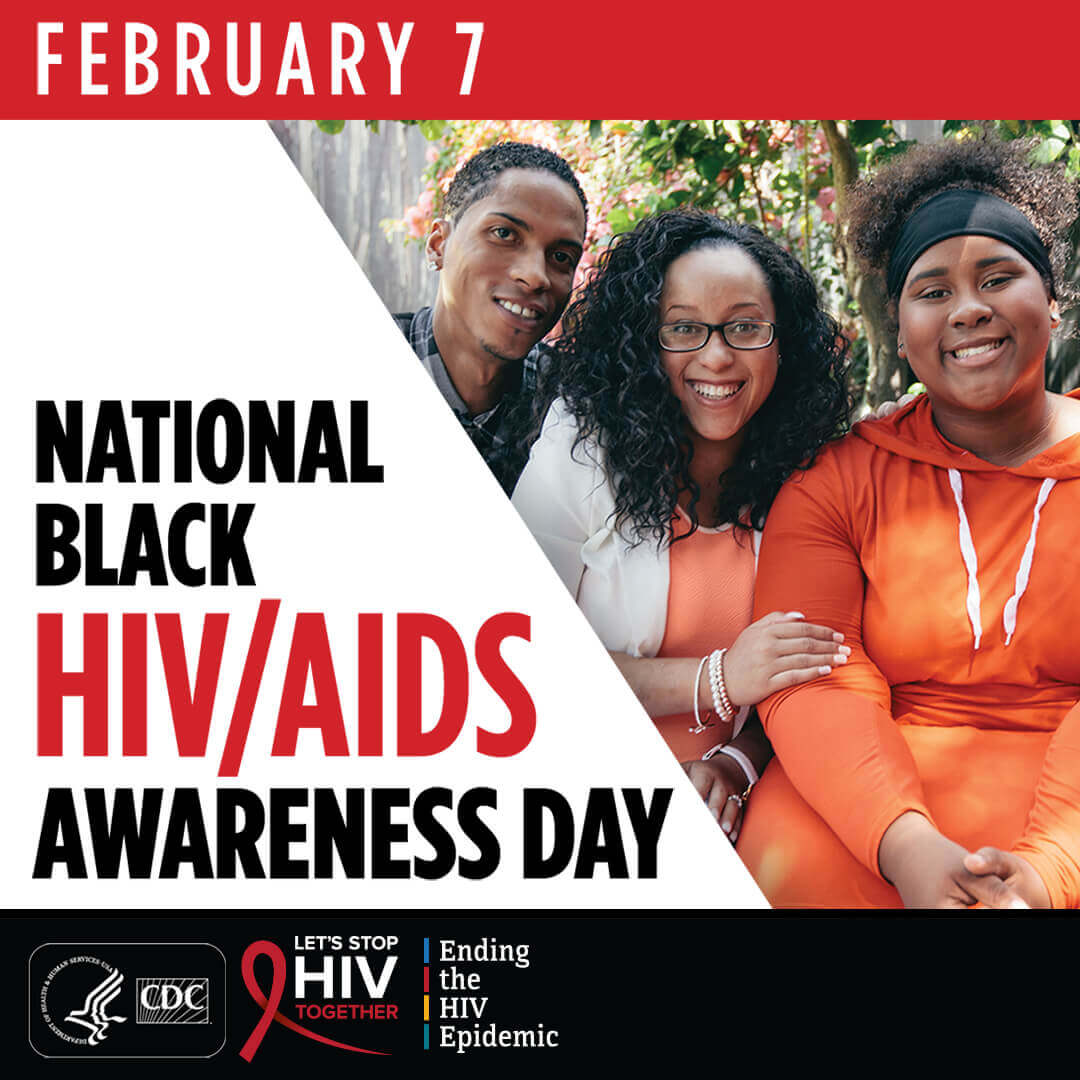National Black HIV/AIDS Awareness Day—February 7
Topics
Cross-posted from Centers for Disease Control and Prevention

February 5, 2021
Dear Colleague,
The impact of COVID-19 has revealed longstanding health disparities and inequities that affect Black or African American (hereafter referred to as African American) people, and some of these disparities mirror those we see with HIV. Differences in health care access, educational opportunities, social support, and financial resources have directly and indirectly influenced overall health outcomes for far too many. As the COVID-19 pandemic evolves, we are reminded that we must work together to ensure our family, friends, loved ones, and communities have the knowledge and resources to stay safe and healthy from COVID-19 and HIV.
February 7 is National Black HIV/AIDS Awareness Day (NBHAAD), a day to celebrate progress in HIV prevention, reduce HIV stigma, and encourage HIV testing and treatment among African American people. This year’s theme, We’re in This Together, emphasizes the role we each play in ending HIV. Although we are physically apart, we can work together to prevent new HIV infections and improve health equity.
Some progress has been made with reducing HIV diagnoses among African American people in recent years. From 2014 to 2018, HIV diagnoses declined 7% among African American people overall in the United States and dependent areas. Among African American men, HIV diagnoses declined 6%, and among African American women, HIV diagnoses declined 10%. This progress indicates the success of targeted efforts to prevent HIV among African American people, but much work remains.
In 2018, more than 16,000 African American people received an HIV diagnosis, representing 42% of all new HIV diagnoses; yet, African American people make up only 13% of the US population. Furthermore, while HIV diagnoses have remained stable among African American gay and bisexual men overall, HIV diagnoses increased 12% from 2014 to 2018 among those men aged 25 to 34. Issues such as limited access to health care, racism and discrimination, and lack of trust in the health care system are common barriers to HIV prevention, testing, and treatment services for some African American people. We can, and we must work together to address these challenges and accelerate progress in reducing disparities and inequities.
As part of the HHS Ending the HIV Epidemic: A Plan for America (EHE) initiative, CDC is working with health departments and community-based organizations to address service challenges and help meet the HIV prevention and care needs of their communities. This includes improving access to HIV testing (including self-testing), increasing the use of pre-exposure prophylaxis (PrEP) for people who do not have HIV, and linking or re-engaging people with HIV to care and treatment. Ensuring that people have access to these effective prevention and care services can help us reach our goal to end HIV.
For NBHAAD, we encourage you to use a new set of prevention materials from CDC's Let’s Stop HIV Together campaign that broadens our portfolio, building on the existing HIV prevention, testing, treatment, and stigma resources. Help us raise awareness by sharing social media content from our digital toolkit using the #NBHAAD and #StopHIVTogether hashtags.
We appreciate your unwavering dedication to HIV prevention during these difficult times. We are committed to ending the HIV epidemic and achieving health equity. It has been a long road, but we know we can reach our goals because We’re in This Together.
Sincerely,
/Demetre Daskalakis/
Demetre Daskalakis, MD, MPH
Director
Division of HIV/AIDS Prevention
National Center for HIV/AIDS, Viral Hepatitis, STD, and TB Prevention
Centers for Disease Control and Prevention
www.cdc.gov/hiv
/Jonathan Mermin/
Jonathan H. Mermin, MD, MPH
Rear Admiral and Assistant Surgeon General, USPHS
Director
National Center for HIV/AIDS, Viral Hepatitis, STD, and TB Prevention
Centers for Disease Control and Prevention
www.cdc.gov/nchhstp